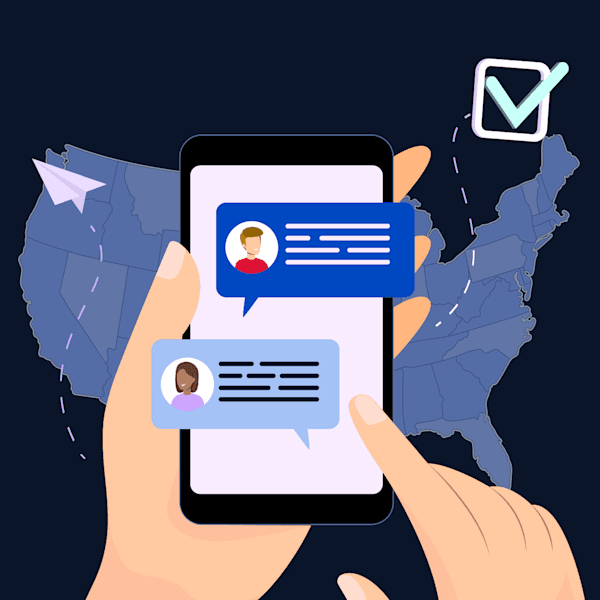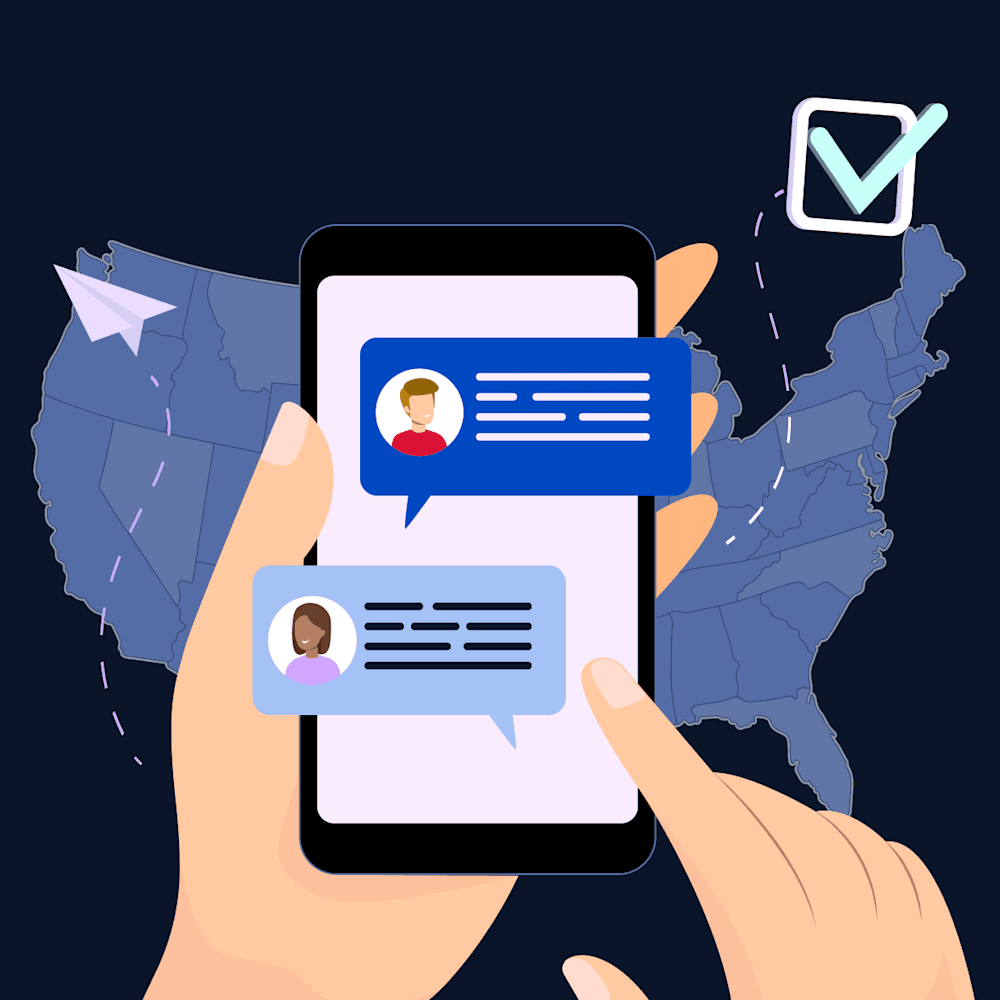
What Is Phone Banking in Politics? Guide for Local Campaigns
Phone banking is one of the most powerful tactics for grassroots political campaigns. It allows you to directly connect with voters, share your message, and build real momentum, one conversation at a time. For local and Independent candidates, those personal touches can be the difference between getting overlooked and getting elected.
Whether you’re running for local office or supporting a third-party campaign, this guide will show you how phone banking works, when to use it, and how to launch a strategy that gets results.
What Is a Phone Bank?
A phone bank is a coordinated effort to contact people in a specific area by phone. Phone banks are usually part of a political campaign, advocacy effort, or community organizing drive. The term phone bank refers to both the group of people making calls and the system or setup they use to do it.
Traditionally, phone banks were held in person with volunteers gathered in one room, dialing from landlines or campaign phones. Today, many campaigns run virtual phone banks, where volunteers make calls from home using digital tools, shared scripts, and cloud-based voter lists.
Whether in-person or online, the goal of a phone bank is the same: to have real conversations with people, provide information, and move them to action.
What Is Phone Banking in Politics?
Phone banking in politics is the process of calling voters directly to share your campaign message, answer questions, and encourage action. You can use phone banking to ask people to sign up to volunteer, donate to your campaign, or go out and vote.
Most political phone banking is done by candidates, volunteers, or campaign staff who want to build authentic connections with voters. Unlike robocalls (which are pre-recorded messages sent to large lists), phone banking involves real conversations between campaign staff or candidates and potential voters. Those conversations help build trust and win support.
How Phone Banking Works
Campaigns use voter data to build call lists, then use scripts to guide conversations that introduce the candidate, discuss key issues, and listen to what matters to voters. These calls can be made manually, using personal phones, or through auto-dialing software that increases speed and scale.
Phone banking is often used to raise awareness, recruit volunteers, earn support, answer questions, and drive voter turnout. Even after the polls close, phone banking is a useful tool for thanking voters and keeping lines of communication open with constituents.
Ultimately, phone banking works because it’s direct, flexible, and deeply personal. It meets voters where they are and gives your campaign the chance to cut through the noise with a real human voice.
LEARN MORE: Check out a sample voter call script that you can tailor to your campaign and save time.
Why Phone Banking Still Works
Even in the digital age, phone banking remains one of the most efficient ways to connect with voters, especially for Independent and local candidates who don’t have a party machine behind them.
Here’s why it works:
It Can Boost Turnout: From national campaigns like Vote Save America (which logged 1.7 million calls in a single weekend) to local candidates leveraging phone banking for city council and school board wins, phone banking is a proven way to energize voters and increase participation in elections.
It’s Relatively Cost-Effective: Compared to hosting campaign events or sending direct mail, phone banking is budget-friendly. All you need is a list, a script, and a few dedicated volunteers.
It Can Quickly Scale Up: With an auto-dialer, a small campaign team can contact hundreds or even thousands of voters in a single day.
It’s Personal: Unlike robocalls or social media ads, phone banking gives voters the chance to ask questions, share concerns, and feel heard. That personal connection builds trust, and trust builds votes.
Whether you're launching your campaign or making a final get-out-the-vote push, real conversations are crucial to building connections with your base and driving votes.
When to Use Phone Banking in Your Campaign
Like canvassing, phone banking can play a different role during each phase of your campaign. The key is to match your goals with the right type of outreach:
Campaign Kickoff: Use phone banking to introduce your candidacy, explain your vision, and start building a base of volunteers and supporters.
Mid-Campaign Outreach: Phone conversations are great for building bridges with undecided voters. Use this time to persuade, inform, and answer questions that may be holding people back from supporting you.
Get Out the Vote (GOTV): In the final weeks before an election, phone banking is one of the most effective ways to remind supporters to vote. Help them make a plan, provide logistical details, and emphasize their power to make change.
Post-Election Follow-Up: Phone banking can help you build for the future. Thank supporters, gather feedback, and invite people to stay involved.
LEARN MORE: Need a script for GOTV calls? Use our phone banking GOTV script to start strong and stay on message.
How to Launch a Phone Banking Strategy That Works
A successful phone banking campaign requires planning, tools, and training.
Here’s how to get started:
Phase #1: Prepare for Your First Phone Bank
Set clear goals: Are you trying to recruit volunteers, identify supporters, or turn out votes?
To prepare for phone banking:
Build or buy your call list. Use quality voter data to target the right people.
Create a great script that feels natural, not robotic.
Practice your script and personalize it wherever possible.
Don’t forget to train your team. Review the script and common objections, and give volunteers a chance to role-play before making calls.
LEARN MORE: Explore how to get and use voter data with GoodParty.org.
Phase #2: Make the Calls
While automated dialers can help with scaling your efforts, manual calls give you the personal touch that can really help build a base of supporters. If you’re trying to reach a large number of people, automated dialers may be the right choice, but for very small districts or campaigns, manual dialing is probably the better option.
Make sure you stay compliant, too. Follow all federal and local calling regulations, including time-of-day restrictions.
While you and your team are calling, jot down notes from the conversations. That way, you can directly follow up with supporters and see if there are trends in top issues, questions, or concerns.
LEARN MORE: Trying to raise funds? Use our fundraising phone banking script to get started.
Phase #3: Improve and Adapt
Using the data you gather from calls and general stats, like how many calls you’re making per day, you can begin to improve both your phone banking strategy and your overall campaign.
Monitor:
How many calls are being made
Your connection rate, or how often voters pick up your calls
How many people say yes to your ask
Trends in conversation topics or questions
Then, refine your approach. If something isn’t working, adjust your list, script, or timing.
Don’t forget to celebrate big conversations to build momentum and keep morale high.
LEARN MORE: Keep your outreach on track with a strong campaign field plan.
Phone Banking vs. Robocalls: What’s the Difference?
While both tools involve calling voters, they serve different purposes.
Phone banking is:
Live calls made by volunteers or staff involving two-way conversations
Personalized and persuasive
Best for building relationships
On the other hand, robocalls are:
Automated, pre-recorded messages, meaning a one-way conversation
Efficient but less personal
Best for quick GOTV reminders or short campaign updates
Phone banking is generally best used as a core outreach tool since it can be so effective for persuasion and GOTV efforts. However, you can also use robocalls at specific points in your campaign, such as if you have a broad event announcement to send out or a quick GOTV reminder.
Volunteer Roles in Phone Banking
Volunteers are the heart of any grassroots phone banking campaign. With a script in hand and passion in their voices, they can represent your campaign with authenticity, break down your platform into clear, persuasive conversations, and collect vital data for your campaign.
If you’re volunteering to phone bank for a campaign, remember to:
Start with a friendly tone and a clear introduction.
Listen as much as you talk. Active listening builds trust.
Take notes. Jotting down key voter concerns helps your campaign stay responsive and builds a stronger follow-up strategy.
Don’t get discouraged by hang-ups or rejections. Every call brings you closer to a win.
At the end of the day, phone banking is about building relationships. When volunteers feel confident, supported, and connected to the campaign’s mission, those conversations become more authentic and impactful. Equip your team well, and they’ll become some of your strongest messengers on the path to victory.
LEARN MORE: See how volunteers help power political change.
Ready to Make the Call?
Phone banking can feel intimidating at first, but once you start having conversations, you’ll realize how powerful it really is. Every voter you reach is another step toward building trust, spreading your message, and making change.
Whether you’re just getting started or ready to scale, GoodParty.org is here to support your phone banking campaign. Whether you're calling your first voter or leading a 50-volunteer phone bank, GoodParty.org gives you the tools and community to stay organized, reach more people, and win on your terms.
Photo by Alexander Suhorucov
Book a free demo today to see how GoodParty.org can support your phone banking strategy, one call at a time.

